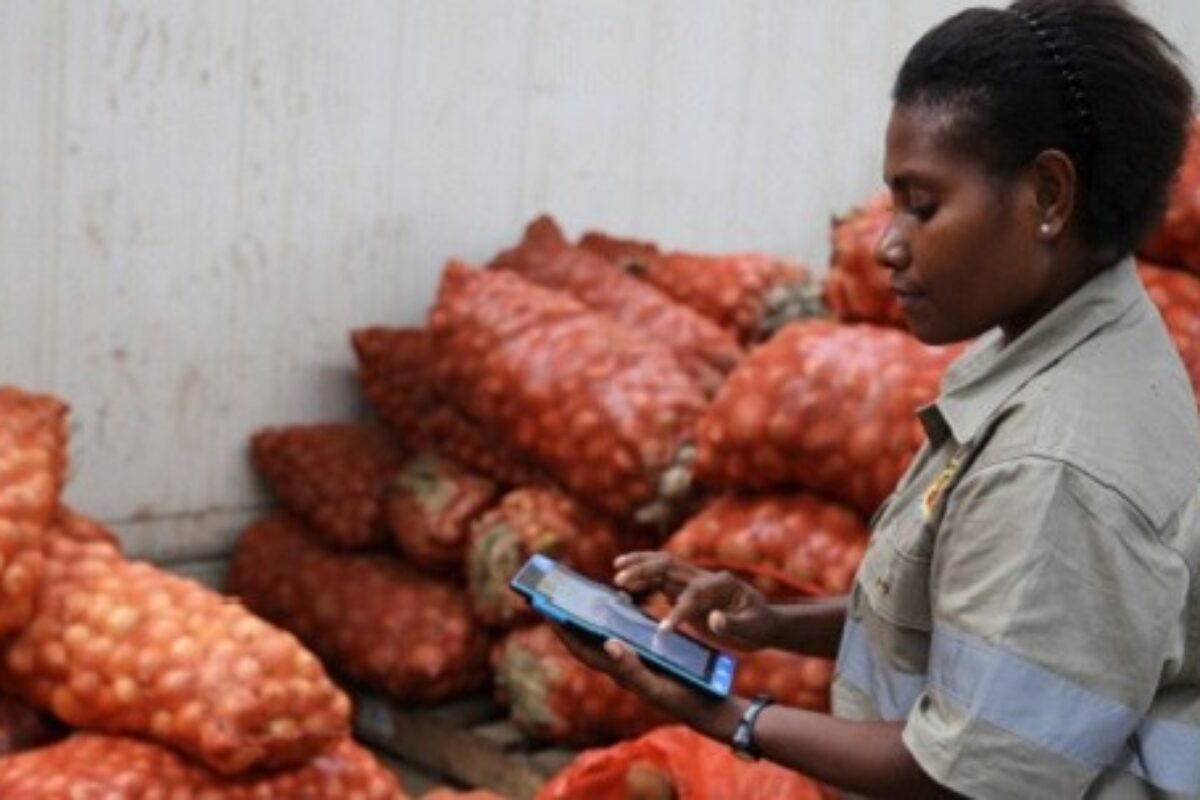NKW Fresh, a division of the landowner-owned conglomerate NKW Holdings, is providing fresh produce across Papua New Guinea and aiming to export to the region. David James explores what this may mean for the country that aims to be the ‘food basket’ of the region.
NKW’s fresh produce division was established in 2014. It was created to complement NKW’s catering services, and as part of a diversification strategy.
It is part of NKW Holdings, which provides services to the Hidden Valley Mining Project in Wau, in Morobe Province. NKW Holdings’ operations include: construction, consulting, catering, transportation and project management. The company employs over 1000 staff and has a net worth in excess of K200 million.
David Stewart, General Manager–NKW Fresh, says that the company has a ‘moral duty’ to develop ‘something for our communities post-mine life.’
That is why NKW Fresh sources produce from local smallholder vegetable farming households, which is then supplied to its catering service and other markets, including supermarkets and other catering companies.
‘We are not looking at the subsistence level; we need to bring the farmers into the commercial level.’
The company buys 60 metric tons of fresh produce each month and deals directly with smallholders, rather than traders, in order to include local farmers.
‘We now have the only effective cold chain [refrigeration] for fresh produce in PNG,’ says Stewart.
‘We run two eight tonne refrigerated trucks up and down the Wau road in Hidden Valley coming back into Lae.’
Scale
Developing sufficient scale remains a persistent challenge, according to Stewart.
‘I often have to say to farmers: “I don’t want to buy six watermelons at five kina each.”
‘We are not looking at the subsistence level; we need to bring the farmers into the commercial level.
‘I want to buy a ute load of watermelons and give the farmer K100,000 a year.’
‘We can’t just keep putting on farmers. At some stage what we need to be doing—and we have been trying to do this in the last six months—is developing those farmers’ personal capital.’
Stewart adds that many of the farmers that work with NKW are now earning in excess of K50,000 a year.
‘Three-to-four years ago, they didn’t even know what their income was, but it would have been less than K5000 a year.’
Supply chain
He believes it is necessary to improve the supply chain if the division is to develop new markets.
‘We can’t just keep putting on farmers. At some stage what we need to be doing—and we have been trying to do this in the last six months—is developing those farmers’ personal capital.
‘So they can understand their money. So they understand that when they get K2500 in the bank—which perhaps they have never seen—they don’t just sit down and have a party.
‘They need to start putting money aside for mechanising, and asking: “How do I make sure I get that amount again?”
‘It is that personal capital that creates the disciplines that will produce a sustainable supply arrangement into our markets.
‘The aim is the export of fresh produce from PNG into the South Pacific, Australia, Singapore, even into China.’
‘And it is starting to happen. We have got farmers starting to buy machinery; we have got farmers who are not spending their money but putting it aside for the bank.’
Challenges
Stewart is under no illusions about the difficulty of expanding the business. He describes shipping in PNG as ‘terrible’ and ‘expensive’, the internet as ‘shocking’ and acknowledges the company is spending too much on its refrigerated trucks.
The roads are also poor, causing the trucks to routinely get bogged down. But, despite the challenges, the company is able to manage—a situation he attributes to the quality of the staff.
‘The aim is the export of fresh produce from PNG into the South Pacific, Australia, Singapore, even into China.
He adds that farmers are starting to save money, a new development. This is in large part due to the work of the company’s eight field extension officers.
‘Their job is to ensure they are mapping the crops, assisting their farmers with their husbandry knowledge, in managing their budgets and in ensuring that their land is being developed ready for the next crop.’
The aim, says Stewart, is the export of fresh produce from PNG into the South Pacific, Australia, Singapore, even into China.
‘That idea is very high on our radar—if it doesn’t remain high, then we don’t have goals.
‘If we don’t have the goals, then we won’t put the right systems in place and we won’t keep pushing.’



